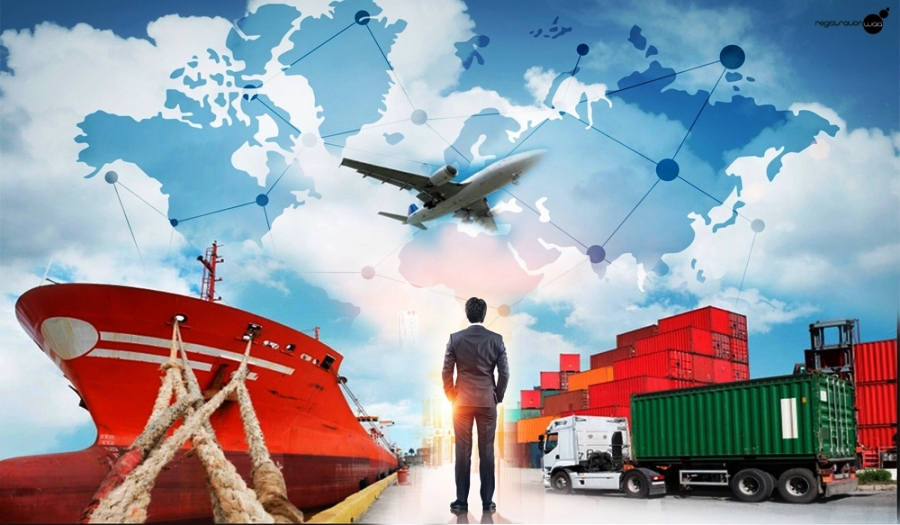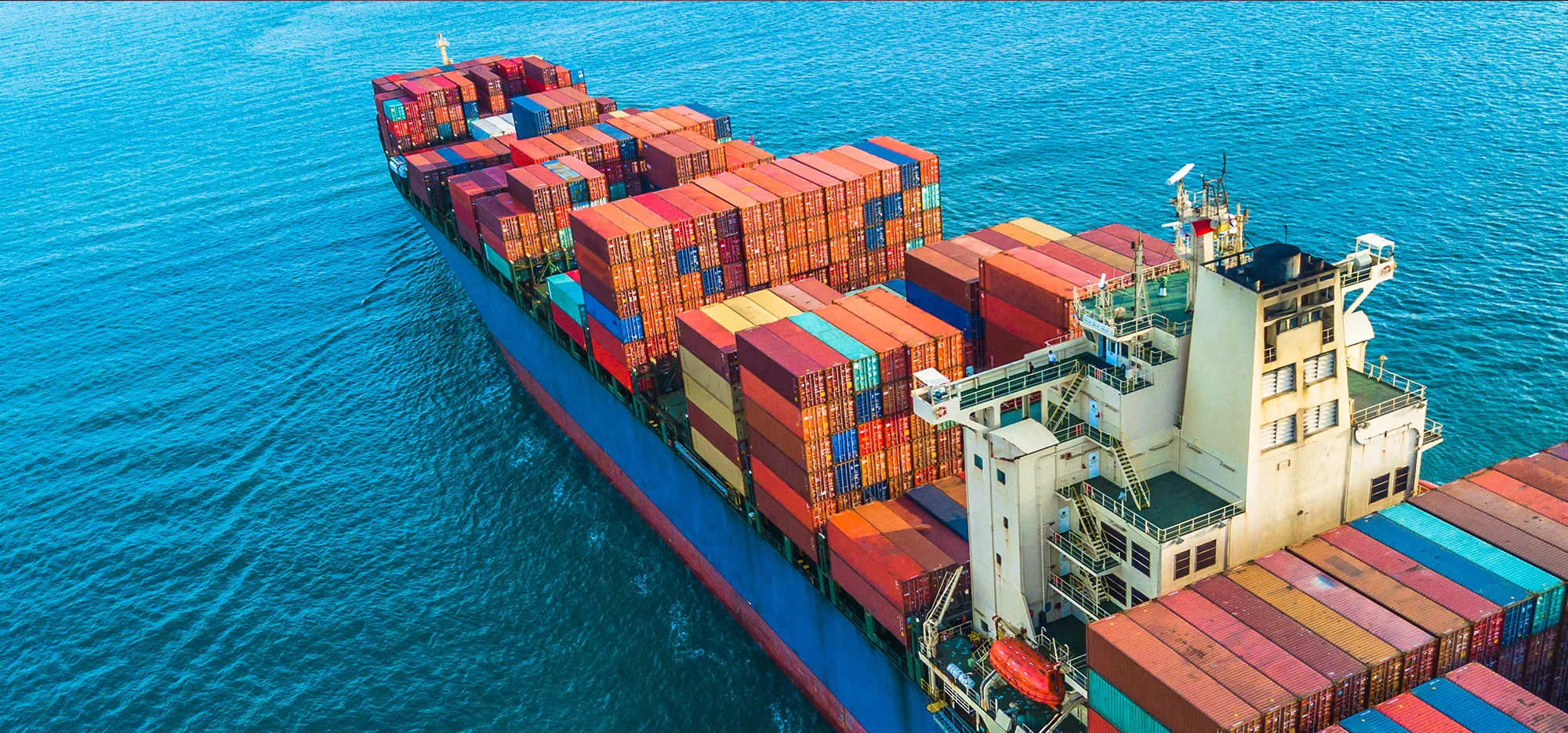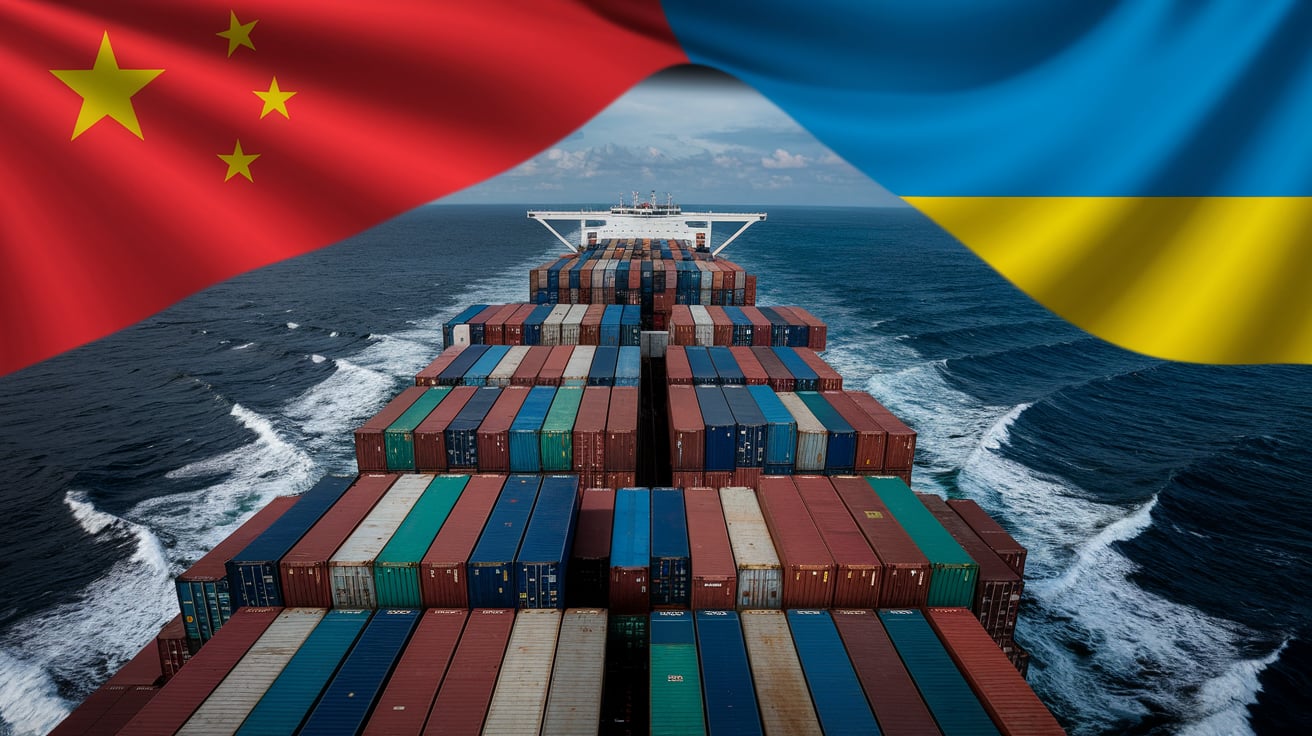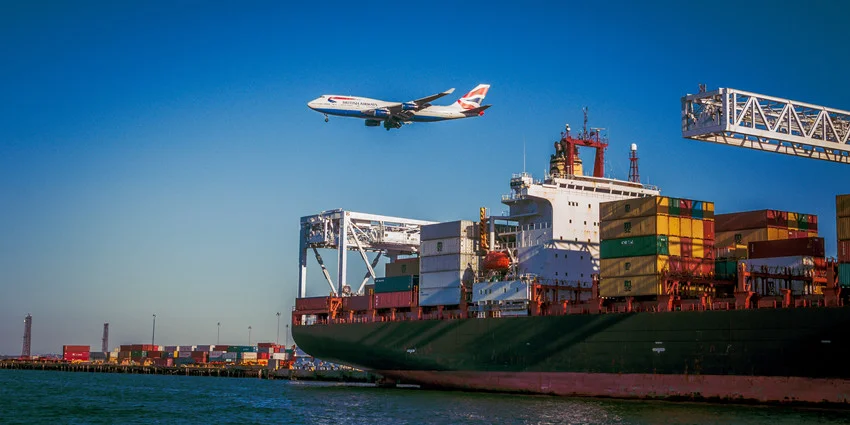Importing goods from China to Lithuania can be a complex endeavor, but understanding your shipping options is essential for success. With a plethora of shipping methods available, including Air Freight and Sea Freight, each comes with its own advantages and challenges. This guide will help you navigate the intricacies of finding the most cost-effective shipping solutions, comparing shipping companies, and implementing strategies to minimize your overall shipping costs. Whether you require rapid delivery of high-value items or are looking to transport bulk goods economically, this comprehensive resource equips you with the knowledge to make informed decisions and streamline your logistics operations.

Understanding Shipping Options from China to Lithuania
Overview of Shipping Methods Available
Air Freight
Air Freight is one of the fastest shipping methods available for transporting goods internationally. This option is ideal for businesses that require rapid delivery, such as those dealing in perishable goods or time-sensitive products. Airlines provide extensive global networks, enabling quick transit from major Chinese cities like Shenzhen and Shanghai to Lithuania. However, this speed comes at a premium price, often making it less cost-effective for bulk shipments but suitable for high-value or urgent shipments.
Sea Freight
In contrast, Sea Freight is the most common shipping option for larger volumes of cargo. It is generally more economical, making it suitable for businesses looking to transport goods in bulk. Shipping via sea can take longer than air, typically ranging from several weeks to over a month, depending on the route and any potential delays at ports. Shipping containers allow for the movement of various goods, including heavy machinery, raw materials, and consumer products.
Here is a comparative overview of the two shipping methods:
| Shipping Method | Speed | Cost | Ideal For |
|---|---|---|---|
| Air Freight | Fast | High | Urgent or high-value items |
| Sea Freight | Moderate to Slow | Low to Moderate | Bulk items or non-urgent shipments |
Comparison of Air Freight and Sea Freight
When deciding between Air Freight and Sea Freight, consider the following factors:
-
Cost: Air freight tends to be significantly more expensive than sea freight due to the operational costs associated with quick transit times. For businesses with tight budgets, sea freight offers a more economical solution.
-
Speed: If time is of the essence, air freight will ensure that your shipments arrive promptly. This method is well-suited for businesses that require immediate inventory replenishment or need to meet customer demands quickly.
-
Reliability: While air freight is generally more reliable due to fewer delays, sea freight offers a level of flexibility, with more frequent departures and the ability to transport larger volumes.
-
Cargo Type: Certain items might be better suited for one method over the other. Fragile or high-value items are often transported via air, while bulk, non-perishable goods are ideal for sea transport.
-
Environmental Impact: Air freight has a larger carbon footprint compared to sea freight, making the latter a more sustainable choice for businesses concerned with their environmental impact.
You may be interested in the following related articles:
- Shipping From China To Cyprus
- Shipping From China to Hungary
- Shipping From China to Romania
- Shipping From China to Greece
- Shipping From China To Belgium
- Shipping From China To Czech Republic
- Shipping From China to Turkey
- Shipping From China To Finland
Key Factors Influencing Shipping Costs
Weight and Dimensions of Your Shipment
The weight and dimensions of your shipment play a vital role in determining the shipping cost. Freight carriers calculate costs based on the greater of actual weight or dimensional weight (volumetric weight). Dimensional weight is calculated using the volume of the package, and it may significantly increase the shipping cost if the package is large but lightweight.
| Weight Class | Typical Costs (Air) | Typical Costs (Sea) |
|---|---|---|
| Up to 500 kg | Higher | Moderate |
| 500 kg – 1,500 kg | Very High | Lower |
| Over 1,500 kg | Extremely High | Most Economical |
Distance and Delivery Time Considerations
The distance from the origin to the destination directly impacts the shipping cost. Longer distances typically involve higher costs due to fuel expenses and operational charges. Additionally, the delivery time chosen will also affect the price. Express shipping options, available primarily through air freight, will incur additional fees relative to standard shipping services.
| Delivery Time | Air Freight | Sea Freight |
|---|---|---|
| 1-3 Days | Premium Rates | Not Available |
| 1-2 Weeks | Moderate Rates | Standard Rates |
| 2-6 Weeks | Not Available | Budget Rates |
Customs Duties and Taxes in Lithuania
When importing goods into Lithuania, it is essential to understand the customs duties and taxes applicable to your shipment. The European Union has specific customs regulations that govern the import of goods, and businesses must ensure compliance with these regulations. The following aspects should be considered:
-
Import Duties: These vary based on the type of goods being imported and are calculated as a percentage of the customs value, which includes the cost of the goods, shipping, and insurance.
-
Value Added Tax (VAT): In Lithuania, VAT is applicable on imported goods at a standard rate of 21%. Ensure to factor this into your overall shipping budget.
-
Customs Clearance Fees: Engaging with a reliable freight forwarding service can simplify the customs clearance process. Dantful International Logistics, for instance, offers comprehensive customs clearance services, ensuring that your shipments meet all regulatory requirements.
By understanding these factors, businesses can better plan their logistics and shipping strategies when importing goods from China to Lithuania, leading to more effective budgeting and operational efficiency.
For a seamless shipping experience, consider partnering with Dantful International Logistics, a highly professional, cost-effective, and high-quality, one-stop international logistics service provider for global traders.
How to Research Shipping Companies Effectively
Utilizing Online Freight Marketplaces
Online freight marketplaces serve as valuable resources for businesses seeking shipping solutions. Platforms like Freightos, uShip, and ShipBob provide access to a wide range of shipping companies and allow users to compare services and prices conveniently. Here’s how to utilize these platforms effectively:
-
Search and Compare: Utilize search filters to compare different shipping methods, such as Air Freight and Sea Freight, and view the available carriers. Make sure to specify the origin (China) and destination (Lithuania) to receive relevant quotes.
-
Instant Quotes: Many marketplaces offer instant quotes based on shipment details. Enter specifics such as weight, dimensions, and delivery urgency to receive competitive pricing from multiple carriers.
-
Detailed Service Options: Review service options provided by various companies, including door-to-door shipping services, customs clearance, and additional offerings such as insurance services.
-
Additional Features: Some platforms provide added features like tracking capabilities, shipment alerts, and even the option to book directly online, which can enhance your shipping experience.
Reading Customer Reviews and Testimonials
Customer feedback is an invaluable resource when researching shipping companies. Here are key considerations for evaluating reviews and testimonials:
-
Platforms to Check: Look for reviews on platforms like Trustpilot, Google Reviews, and shipping-specific forums. These sources often contain insights about real customer experiences with specific shipping providers.
-
Assess Consistency: Identify recurring themes within the reviews. Positive feedback about reliability, promptness, and customer service is a good indicator of a reputable company.
-
Red Flags: Be wary of companies with a significant number of negative reviews, particularly those mentioning lost shipments, poor communication, or hidden fees.
-
Testimonials on Official Websites: While official websites may feature testimonials, cross-reference these with independent review platforms for a more balanced perspective.
Comparing Shipping Companies
Once you have gathered sufficient information about various shipping companies, it’s essential to compare them based on several key criteria.
Criteria for Comparison
-
Cost: Evaluate the total shipping cost, including shipping fees, customs duties, and any additional charges. Consider obtaining quotes from multiple carriers to understand the market rate for your specific shipment.
-
Reliability and Reputation: Research the reliability of each shipping company. Look for certifications, industry awards, and reputation within the logistics community. Companies with a strong network and established history are typically more reliable.
-
Transit Time: Different shipping methods will offer varying transit times. Assess the estimated delivery times and determine which schedules align best with your business needs. Remember to factor in potential delays, especially with customs clearance.
-
Customer Service: Quality customer service can significantly enhance your shipping experience. Consider companies that provide easily accessible support, clear communication, and dedicated account management.
Top Shipping Companies
Identifying leading shipping companies can simplify your decision process. Below is an overview of some top contenders in the shipping industry.
Overview of Leading Shipping Companies
| Company Name | Service Highlights | Global Reach | Specialties |
|---|---|---|---|
| DHL | Extensive global network, express shipping options | Worldwide | E-commerce, international express |
| Dantful | Professional, cost-effective, one-stop logistics | Global | Comprehensive services including DDP, customs clearance, and warehouse solutions |
| FedEx | Fast transit times, reliable tracking | Worldwide | Time-sensitive shipments, e-commerce |
| UPS | Flexible shipping options, strong customer service | Worldwide | Package delivery, supply chain solutions |
Comparative Table with Key Metrics
| Metric | DHL | Dantful | FedEx | UPS |
|---|---|---|---|---|
| Cost | Moderate | Competitive | High | Moderate |
| Reliability | High | High | Very High | High |
| Transit Time | 1-5 days | 1-4 weeks (sea) / 1-3 days (air) | 1-3 days | 1-5 days |
| Customer Service | Strong | Personalized support | Excellent | Strong |
Evaluating these companies based on the outlined criteria will help you identify the most suitable shipping partner for your business needs. When selecting a shipping company, consider Dantful International Logistics for our highly professional, cost-effective, and high-quality services, which cater specifically to global traders. By partnering with a reliable shipping provider, you can ensure a smoother importing process from China to Lithuania.
Dantful International Logistics Services:
- Dantful Ocean Freight Services
- Air Freight From China
- Amazon FBA Freight Forwarding
- WAREHOUSE Services
- One-Stop Customs Clearance Solution
- Cargo Insurance Services in China
- DDP Shipping Services By Dantful Logistics
- Out of Gauge Cargo Transportation Shipping Services
Tips for Reducing Shipping Costs
Shipping costs can significantly impact the overall expenses involved in importing goods from China to Lithuania. Implementing effective strategies to minimize these costs can enhance your profit margins and improve your business’s competitiveness. The following sections provide actionable tips to help you reduce shipping expenses.
Bulk Shipping
Bulk shipping is one of the most effective methods for reducing shipping costs. By consolidating shipments, you can take advantage of economies of scale, leading to lower per-unit shipping costs. Here are some considerations for utilizing bulk shipping effectively:
-
Plan Ahead: Coordinate with suppliers to schedule larger shipments less frequently rather than several small orders. This approach not only optimizes shipping costs but also reduces the frequency of customs clearance procedures and associated fees.
-
Utilize Full Container Loads (FCL): For businesses shipping larger quantities, opting for a Full Container Load (FCL) is often more cost-effective than Less Than Container Load (LCL). FCL ensures that you pay a flat rate for the entire container, maximizing your shipping capacity.
-
Combine Shipments: If you work with multiple suppliers, consider consolidating shipments into a single order. This strategy minimizes transportation costs and simplifies logistics.
-
Work with Freight Forwarders: Partnering with a reliable freight forwarder like Dantful International Logistics allows you to access bulk shipping discounts and expertise in optimizing your shipping strategies.
Flexible Shipping Dates
Being flexible with your shipping dates can lead to significant cost savings. Here’s how to take advantage of this strategy:
-
Off-Peak Shipping: Shipping during off-peak periods can reduce costs, as carriers often offer lower rates during less busy times. Research and plan shipments to avoid peak shipping seasons, which typically experience higher demand and prices.
-
Adjust Delivery Windows: If immediate delivery is not a necessity, consider a longer delivery window. This flexibility allows shipping companies to optimize their routes and offer better rates.
-
Utilize Economy Services: Many carriers provide economy shipping services at reduced costs. While delivery may take longer, the savings can be substantial, especially for non-urgent shipments.
Negotiating with Shipping Companies
Negotiation is a critical skill in the shipping industry that can lead to reduced costs. Here are strategies to help you negotiate effectively with shipping providers:
-
Establish Relationships: Build strong relationships with shipping companies by maintaining open communication and trust. Long-term partnerships can lead to more favorable rates and terms.
-
Request Quotes from Multiple Carriers: Gathering quotes from various shipping companies provides leverage in negotiations. Presenting competing offers can encourage carriers to improve their pricing.
-
Highlight Volume Potential: If your business anticipates growth or has consistent shipping needs, communicate this to the shipping companies. Highlighting potential volume can lead to better pricing structures and discounts.
-
Be Informed: Understanding the market rates for shipping services empowers you during negotiations. Research current shipping trends, average costs, and competitor offerings to ensure you receive a fair deal.
-
Ask for Discounts: Don’t hesitate to inquire about discounts for regular shipments or loyalty programs. Many shipping companies offer incentives for businesses that frequently use their services.
Frequently Asked Questions (FAQs)
1. What are the main shipping methods available for importing goods from China to Lithuania?
The two primary shipping methods are Air Freight and Sea Freight. Air Freight is faster but more expensive, making it preferable for urgent or high-value items. Sea Freight is more economical and suitable for bulk shipments but takes longer for delivery.
2. How does the cost of shipping vary between Air Freight and Sea Freight?
Air Freight costs are generally higher due to the speed of delivery, while Sea Freight offers lower costs, especially for larger volumes of goods. The choice between the two depends on your budget and urgency.
3. How do weight and dimensions of shipments affect shipping costs?
Shipping costs are influenced by both the actual weight and the dimensional weight (volume-based). Carriers charge based on the greater of the two, so larger but lighter packages may incur higher costs due to dimensional weight calculations.
4. What customs duties and taxes should I expect when importing to Lithuania?
When importing goods into Lithuania, you should account for import duties, which vary by product type, and a Value Added Tax (VAT) of 21% on imported goods. Additionally, there may be customs clearance fees.
5. How can I choose the right shipping company?
Research online freight marketplaces for service comparisons, read customer reviews on platforms like Trustpilot, and evaluate shipping companies based on cost, reliability, transit time, and customer service.
6. What are effective strategies for reducing shipping costs?
To minimize shipping expenses, consider bulk shipping, being flexible with shipping dates, and negotiating with shipping companies for better rates. Partnering with a reliable freight forwarder can also help in accessing discounts.

Young Chiu is a seasoned logistics expert with over 15 years of experience in international freight forwarding and supply chain management. As CEO of Dantful International Logistics, Young is dedicated to providing valuable insights and practical advice to businesses navigating the complexities of global shipping.





















